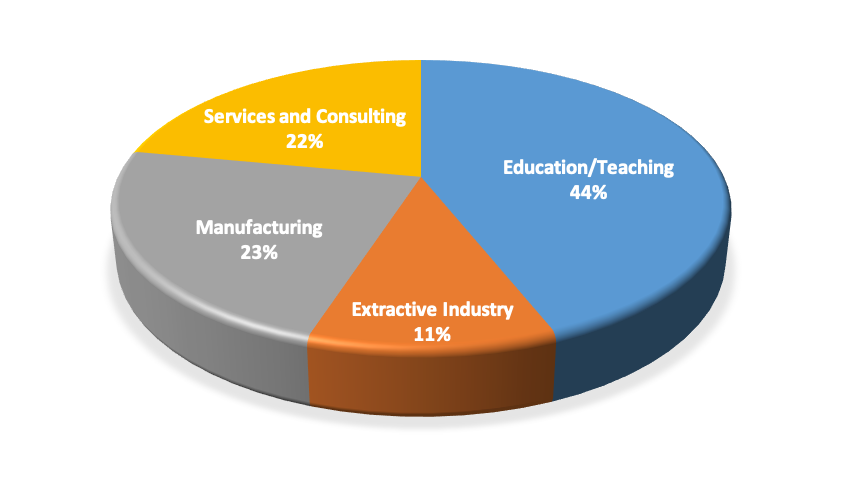Objectives
We live in a world that is both dependent and limited by materials. To do this, just a simple look at everything around us: cars, airplanes, computers, refrigerators, televisions, radios, mobile phones, sports equipment, biomedical devices (artificial valves, prostheses, among others). All these applications required the development of materials and manufacturing processes, in order to be given the required properties and functionality. The new technologies developed in Science and Engineering will continue to effect changes in our lives and the Master in Materials Engineering will continue to be the key to such change and progress.
Through attendance of the MEMat, the student should:
- acquire the specific skills and knowledge seen as fundamental to exert a professionalactivity;
- possess the research and analytical methodological tools which are fundamental requisites for adequate learning and critical thinking;
- be informed as to the diversity of situations and professional possibilities;
- be capable to articulate the knowledge gathered during the course and the requirements of the job market;
- feel attracted to the difficulties inherent to the resolution of industrial and R&Dproblems;
- develop a critical view conducive to creative autonomy within the course’s subject area;
- demonstrate the necessary capabilities for team work, leadership and entrepreneurship.
The Master in Materials Engineering should understand, manipulate and modify materials in order to fulfil any market requirements, thus offering a contribution to industrial development.
Career opportunities
Training in Materials Engineering was launched at the NOVA School of Science and Technology FCT|NOVA in 1981. Since then, the demand for Material Engineers has increased significantly, as a result of a highly technological training that enables the Masters in Materials Engineering to exercise a profession immediately after completing the course.
The employability of the Masters in Materials Engineering is 94%, according to official data, obtained for graduates between the academic years 2014/15 and 2017/18.
In which the sectors of activity of graduates are as follows:

Scientific Area
Materials Engineering
Industrial Engineering
Transferable Skills
Micro and Nanotechnology
Any Scientific Area
Curricular Plan
1st Year
1st semester
Metal Processing
Ceramics and Glasses Processing
Mesomorphic Materials and Applications
Biomaterials
Nanomaterials and Nanotechnologies
2nd semester
Polimeric Materials Processing
Coatings and Thin Films Technologies
Materials for Energy
Conversion and Storage
Unrestricted Elective B
Quality Planning and Control
2nd trimester
Entrepreneurship
2nd Year
1st semester
Materials Selection and Sustentability
Computational Modelling ofMaterials
Surface Degradation and Protection
Dissertation Project
Option I
2nd semester
Dissertation in Materials Engineering
Option Group I
Biosensors
Recording Electronic Information
Sensors: Materials and Applications
Smart Materials and Systems
Optoelectronics
PhotovoltaicEnergy: Materials and Applications
Paper and Cellulosic Materials
Foams and Cellular Materials
Foundry and Welding Technologies
Finance for Entrepreneurs
Biochemical Engineering I
Cell and Tissue Engineering
Machine Learning
Business Management
History of Technology and Engineering
Microeconomics
Industrial Organization
Testimonial
Marina Castanheira (ex-aluna)
The Master degree in Materials Engineering was one of the best experiences I could have chosen for me: the classes, from mandatory to optional; the teachers and the environment created between everyone and the department, with its events and initiatives.
Academically, our master's degree is considered one of the best, also accredited and certified, and it taught me a lot by being able to transmit and materialize theoretical knowledge for the practical component, and the laboratory environment allowed me to consolidate and understand everything much better. The enormous involvement that each student can and can have in each chair has made the Teacher / Student connection more narrow and meaningful, greatly enriching the atmosphere and spirit of the course. This dynamic was strongly complemented by the initiatives and opportunities that the department itself allowed, both through academic and recreational activities. I can honestly say that I spent some of the best moments and experiences as a volunteer or participant in some of these initiatives, having been able to meet and work with great people.
It is with great pride that I say that I am a Master in Materials Engineering from the Faculty of Science and Technology!
Tuition Fees
Portuguese students: 1500 €/year
Foreign students: 7000 €/year
Accepted applicants will have to pay (within a maximum of 7 consecutive days from the date of placement) a non-refundable rate of 100 euros, which will be deducted, after registration, from the total tuition fee. Any payment made after the deadline will not be refunded, leaving the candidate excluded.



















